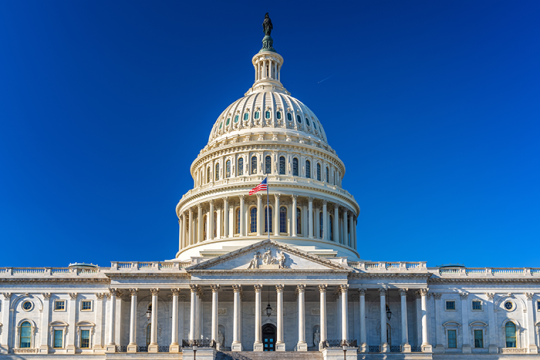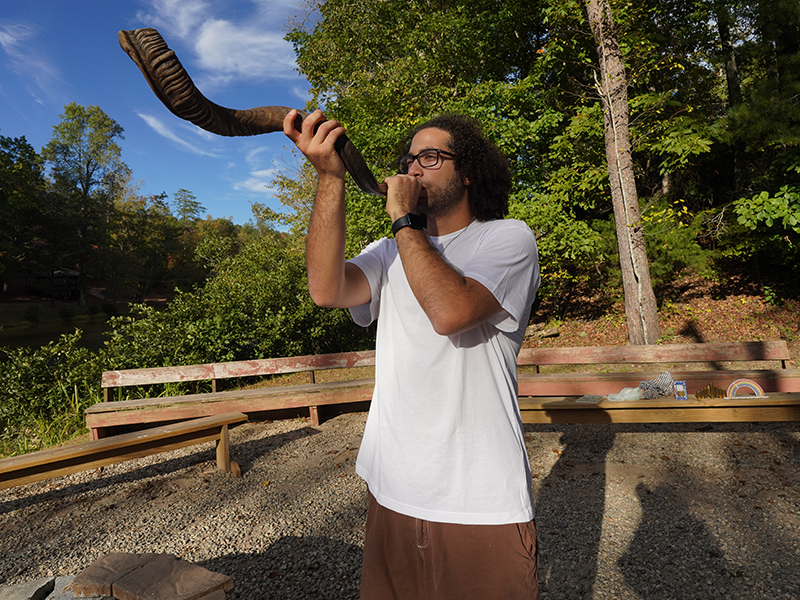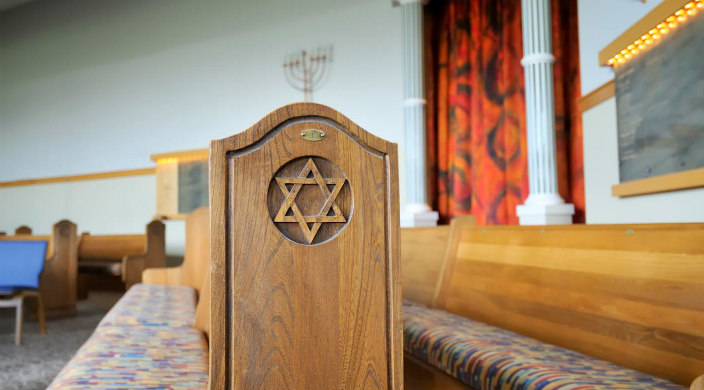
On Thursday, May 4, President Trump signed an executive order on religious liberty, which included a provision related to the “Johnson Amendment.” What does this mean in general – and for our synagogues?
This federal prohibition on partisan politicking from the pulpit has been in place since 1954, located in section 501(c)(3) of the federal tax code. It establishes that tax-exempt entities may not endorse or oppose candidates or parties for elected office. This includes donating to campaigns, endorsements from the pulpit, or using congregational resources such as the temple bulletin to support or oppose individual candidates.
President Donald Trump has said on several occasions that he planned to “totally destroy” the Johnson Amendment, but his executive order did not, in fact, do so. The prohibition remains on houses of worship engaging in partisan politics – and that is a very good thing for synagogues.
First, let’s be clear on what executive orders can and cannot do. Executive orders can change how laws are implemented and enforced, but they are not absolute. Executive orders are subject to checks and balances from Congress and the courts and can be easily overturned by orders issued by subsequent presidents.
In this case, the executive order instructed the Treasury Department to treat speech from houses of worship or religious leaders the same as they treat secular nonprofits when it comes to enforcing Johnson Amendment. Any nonprofit that, like synagogues, falls under section 501(c)(3) of the tax code is prohibited from endorsing or opposing candidates or parties, so the order effectively changes nothing about what synagogues or rabbis acting in their official capacity (rather than in their personal capacity at citizens) can do. The premise of this executive order – that the IRS is targeting houses of worship for speech that is permitted by secular non-profits – is unsubstantiated.
The Reform Movement, like other faith denominations, has a proud history of speaking on the moral and social issues of the day. Speaking truth to power is a hallmark of religious life in the United States, and the Johnson Amendment does not hinder this important role. How do we fulfill this sacred purpose?
- Houses of worship and all other non-profits are able to speak openly and frequently on issues of political or social concern – from the pulpit or in any other congregational setting.
- Congregations can, and even are encouraged, to engage in elections in a nonpartisan manner, including hosting candidate forums, organizing voter registration drives, encouraging participation in elections, and driving people to the polls.
- Clergy and houses of worship can take positions on legislation or policy-related ballot initiatives or referenda. In their personal capacity, clergy can endorse or oppose candidates, and even run for office while maintaining their position in ecclesiastical leadership.
This executive order serves as an important reminder of how the prohibition on partisan politicking enhances congregational life by making sure we leave the polarizing political conversations at the door of the synagogue. Let your Members of Congress know that you support this important protection for houses of worship and oppose overturning the Johnson Amendment. Religious institutions remain one of the few places in our society where people can come together to model the comity and unity we wish to see in our broader communities. Let us lift our voices for justice, and do so in non-partisan ways that ensure our congregations remain places of welcome and spirituality for all.
Below is a list of resources for congregations on the topic of their tax-exempt status:
- Speaking Truth to Power: A Guide for Congregations Taking Public Policy Positions: Includes resources on how to take positions on public policy issues without affecting tax exemption; how to create a process for taking such positions; responding to diversity of views within the congregation; and more.
- "Dos and Don’ts for Congregations on Election Activities": A guide for engaging in election activities in a non-partisan manner.
- FAQ on Congregations and Tax Exempt/501(c)(3) Status: The URJ’s chief financial officer, in consultation with URJ counsel, provides answers to questions about applying for tax-exempt status and how URJ membership factors into the decision.
- Statement of RAC Director Rabbi Jonah Dov Pesner on the Executive Order: In response to the executive order, Rabbi Jonah Dov Pesner, director of the RAC, released a statement on May 4, 2017, condemning any attempt to weaken the Johnson Amendment.
- Testimony of Rabbi David Saperstein on the Johnson Amendment: In a coincidence of timing, on the same day the executive order was issued, Rabbi David Saperstein, URJ senior advisor for policy and strategy and director emeritus of the RAC, testified on the prohibition on partisan politicking and free speech of churches at a hearing held jointly by the U.S. House of Representative’s Oversight and Government Reform Committee’s Health Care, Benefits and Administration Subcommittee and Government Operations Subcommittee.
Have something to say about this post? Join the conversation in The Tent, the social network for congregational leaders of the Reform Movement. You can also tweet us or tell us how you feel on Facebook.
Related Posts
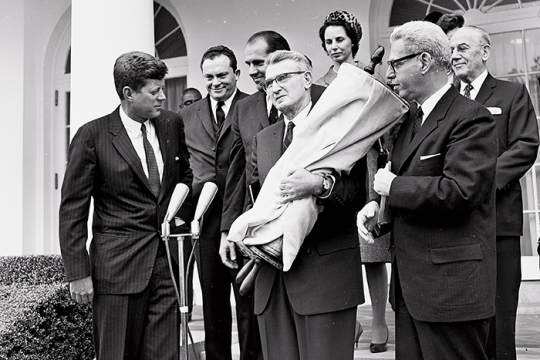
The URJ at 150 and Founding of the RAC
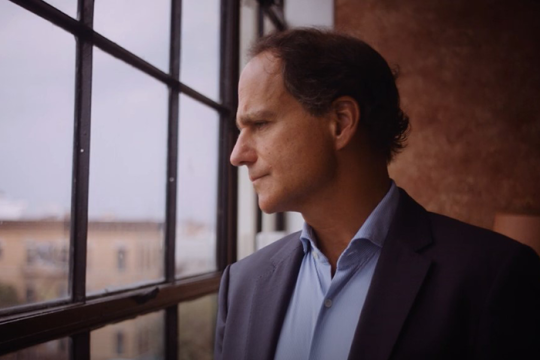
Justice for All People Everywhere: An Interview with Rabbi Jonah Pesner
